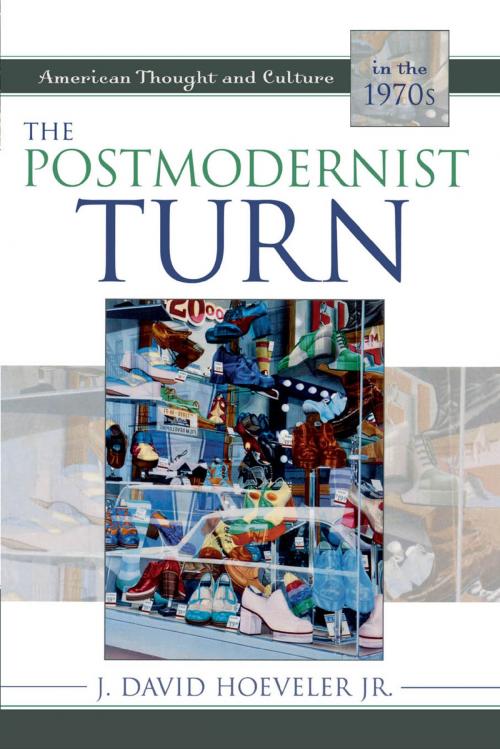The Postmodernist Turn
American Thought and Culture in the 1970s
Nonfiction, History, Americas, United States| Author: | J. David Hoeveler, Jr. | ISBN: | 9781461645214 |
| Publisher: | Rowman & Littlefield Publishers | Publication: | October 5, 2004 |
| Imprint: | Rowman & Littlefield Publishers | Language: | English |
| Author: | J. David Hoeveler, Jr. |
| ISBN: | 9781461645214 |
| Publisher: | Rowman & Littlefield Publishers |
| Publication: | October 5, 2004 |
| Imprint: | Rowman & Littlefield Publishers |
| Language: | English |
During the 1970s, the United States became the world's preeminent postindustrial society. The new conditions changed the way Americans lived and worked, and even their perceptions of reality. Americans struggled to find their place in a world where symbol became more important than fact, appearance more important than reality, where image supplanted essence.
In this reassessment of a little studied decade, J. David Hoeveler, Jr., finds that the sense of detachment and dislocation that characterizes the postindustrial society serves as a paradigm for American thought and culture in the 1970s. The book examines major developments in literary theory, philosophy, architecture, and painting as expressions of a 1970s consciousness. Hoeveler also explores the rival "political" readings of these subjects and considers the postmodernist phenomenon as it became an ideological battleground in the decade. Clear and engaging, the work will be of great interest to historians, theorists, and everyone who wants to further explore the 1970s.
During the 1970s, the United States became the world's preeminent postindustrial society. The new conditions changed the way Americans lived and worked, and even their perceptions of reality. Americans struggled to find their place in a world where symbol became more important than fact, appearance more important than reality, where image supplanted essence.
In this reassessment of a little studied decade, J. David Hoeveler, Jr., finds that the sense of detachment and dislocation that characterizes the postindustrial society serves as a paradigm for American thought and culture in the 1970s. The book examines major developments in literary theory, philosophy, architecture, and painting as expressions of a 1970s consciousness. Hoeveler also explores the rival "political" readings of these subjects and considers the postmodernist phenomenon as it became an ideological battleground in the decade. Clear and engaging, the work will be of great interest to historians, theorists, and everyone who wants to further explore the 1970s.















